Appreciating without owning: Experience nature's bounty | Candace McKibben
When my eldest grandchild, Rylee, now a junior in college, was just 6 years old, one of the Christmas gifts I gave her was a manatee named Georgia. Adopted from the “Save a Manatee” foundation, I had given Rylee a card, and a little book I wrote, to open on Christmas Day.
I received a concerned call from Rylee on Christmas morning thanking me for Georgia, but wondering where they might possibly put her. She asked if Georgia might stay in my swimming pool. The sweet innocence of her call still warms my heart.
While we did not get to bring Georgia home, Rylee and I, along with her younger brother and mother, did make a trip to Orange City, Florida, where Georgia was frequently sighted at Blue Springs State Park. This park is known as the winter home of the Florida manatee, and it was easy to see why.
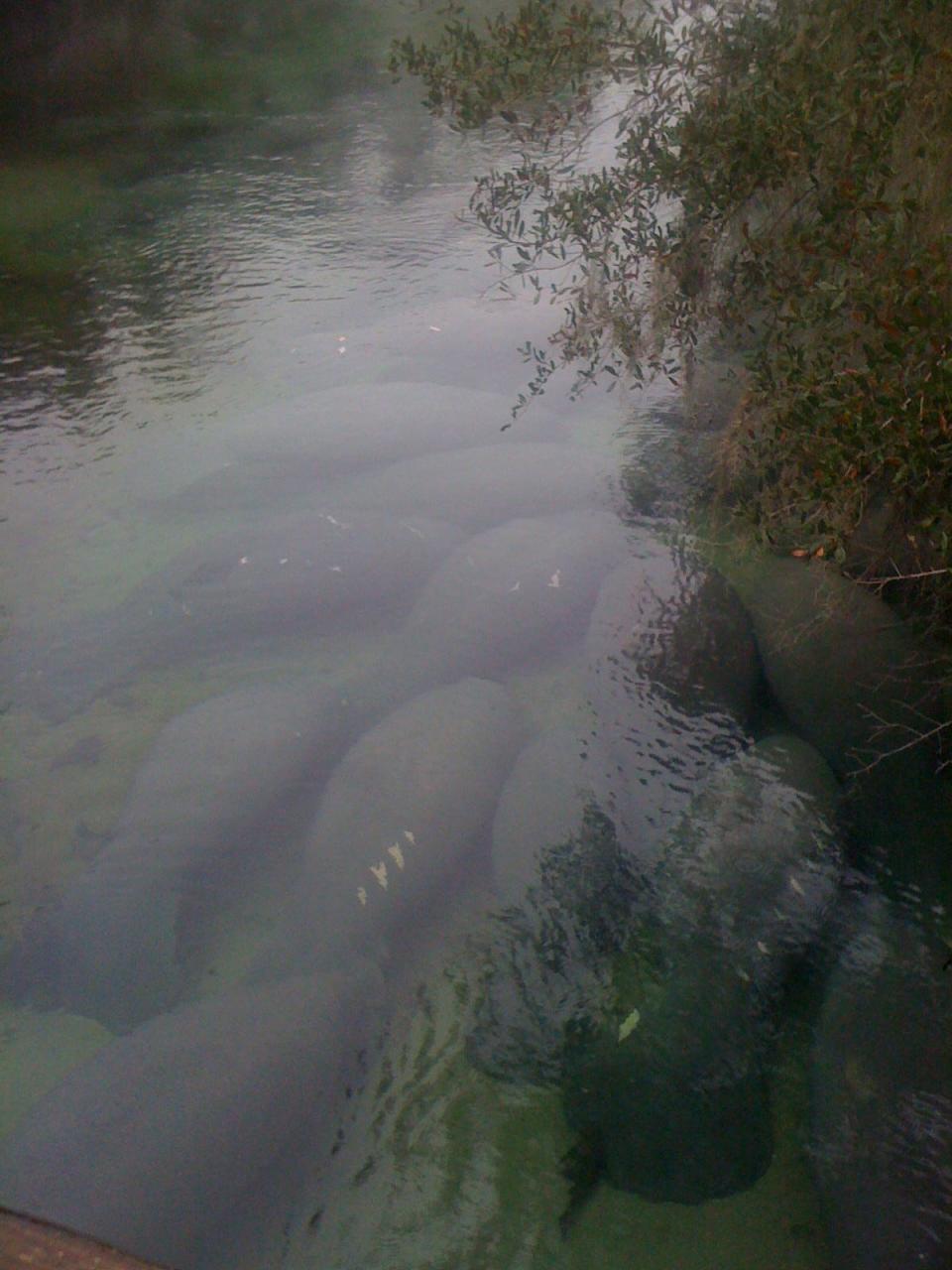
On a Saturday morning in early January 2010, the park ranger graciously helped us spot Georgia among many manatees who were huddled in the spring run in bitter cold weather much like the weather we have experienced in Tallahassee this week. Sadly, he recognized her by the boat propeller scars across her back.
It felt magical to me that we had found her, and even more magical when we noticed snowflakes gently falling around us.
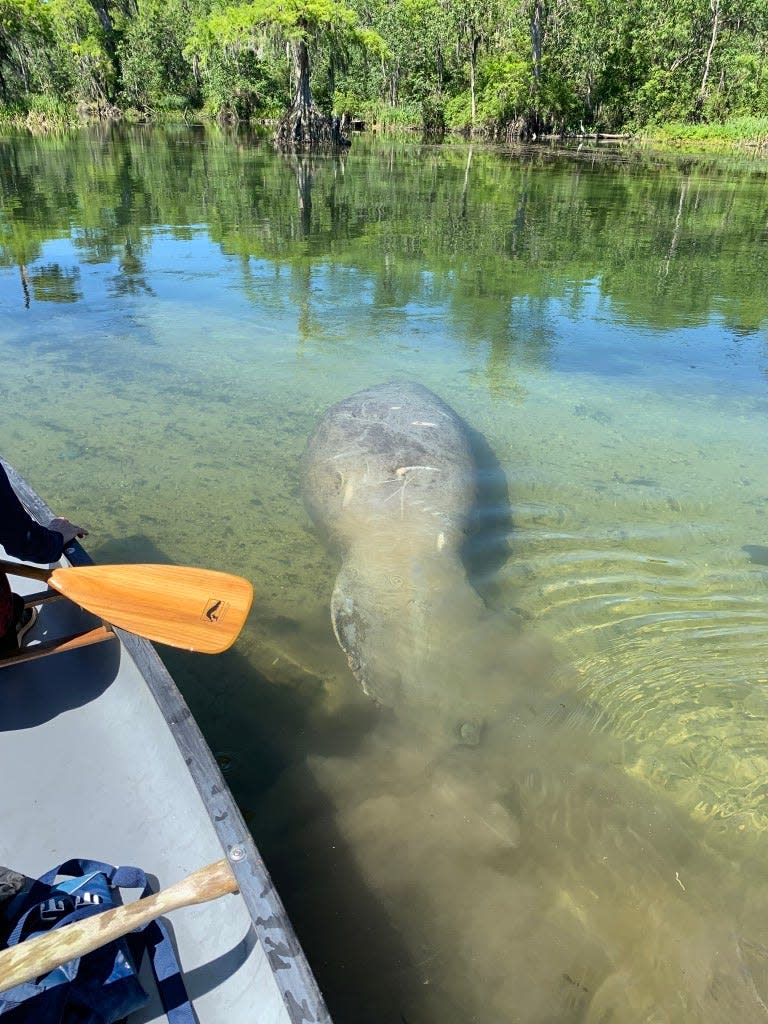
Manatees and more on the Wakulla
Since moving to Tallahassee in the summer of 1990, I have found it fascinating to paddle on the beautiful rivers in our area, and none more beautiful to me than the Wakulla River.
This river emerges from the mouth of the largest and deepest freshwater spring in the world. While only a little more than 10 miles long, with three miles of that length protected by the state park from any intrusions by boats other than those at the Wakulla Springs Lodge, there is plenty to see in the four miles of river between the upper (CR 365-Shadeville Highway) and lower (US 98) bridges where most paddlers launch.
Just south of the the lower bridge, there is a convenient canoe/kayak rental, and another 2.6 miles of river before reaching the St. Marks City Park. If you venture another .6 miles south beyond the park, you reach the historic fort site where the Wakulla River joins the St. Marks River, widening to the Gulf of Mexico. With the protected St. Marks Wildlife Refuge bordering these waters, the beauty is unspoiled and well worth the trip.
On a brief paddle between the upper and lower bridges of the Wakulla River this week, we saw many birds, including anhinga, cormorants, kingfishers, osprey, egrets, herons, pileated woodpeckers, ibis, and buzzards.
We saw fish darting beneath the canoe, including gar, mullet, and bass, as well as turtles sunning themselves on fallen limbs at the water’s edge. We were able to see deep into the woods on either shoreline, and the beauty of leafless trees in this winter setting is breathtaking. Most excitingly, we saw manatees. Many of them.
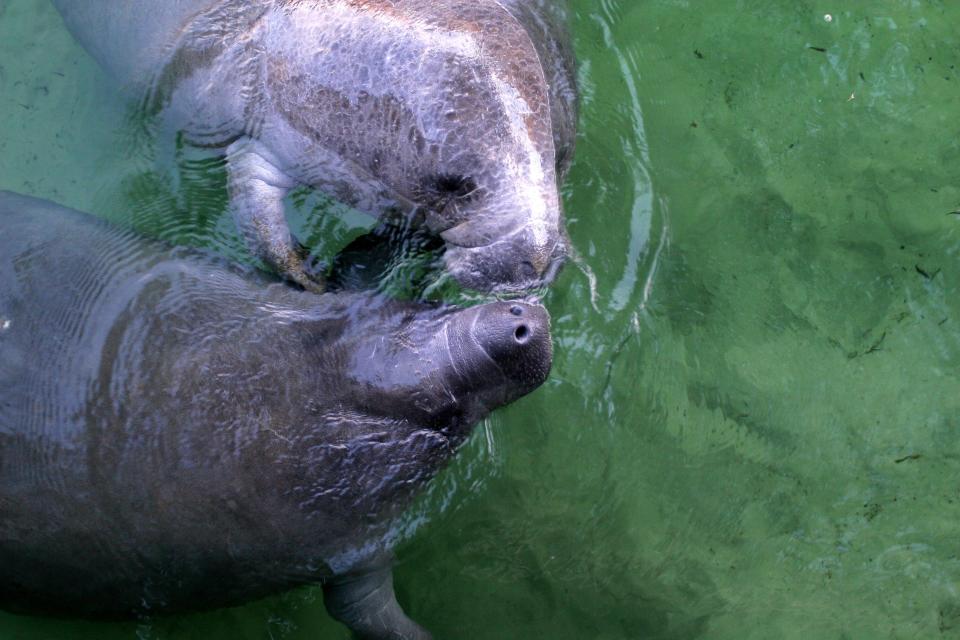
Lessons in breathing
In a small cove the locals call the “honey hole,” we saw six manatees including a baby and a juvenile. Later that same day, we were saying goodbye to the river from the Mysterious Waters community dock when, much to our delight, a parade of manatee came swimming swiftly by in the current from the upper bridge headed south.
We imagined that these five were headed to that same protected cove in preparation for a cold winter’s night. Wakulla Springs is the Gulf of Mexico’s northernmost geographic location, where manatees congregate and consistently winter in large numbers, and we are the beneficiaries.
I am overwhelmed by the good fortune that is ours to live in such a beautiful area of the country. And I am grateful for the ways in which nature, when we are attentive, can heal our souls. We sat for a good hour in our canoe and watched the manatees at the honey hole surface for air, with only their nostrils above the water line.
Their deep, long breaths reminded me of how important it is to breathe deeply. With little effort, it seemed, they went about their business of leaving the cove to eat, returning to sleep, and surfacing to breathe. Their grace and calmness seemed like an encouragement to me in my own busyness to slow down.
But perhaps most importantly, I was reminded of my granddaughter, Rylee, and her concerned call on a Christmas years ago wondering where she might put her manatee named Georgia.
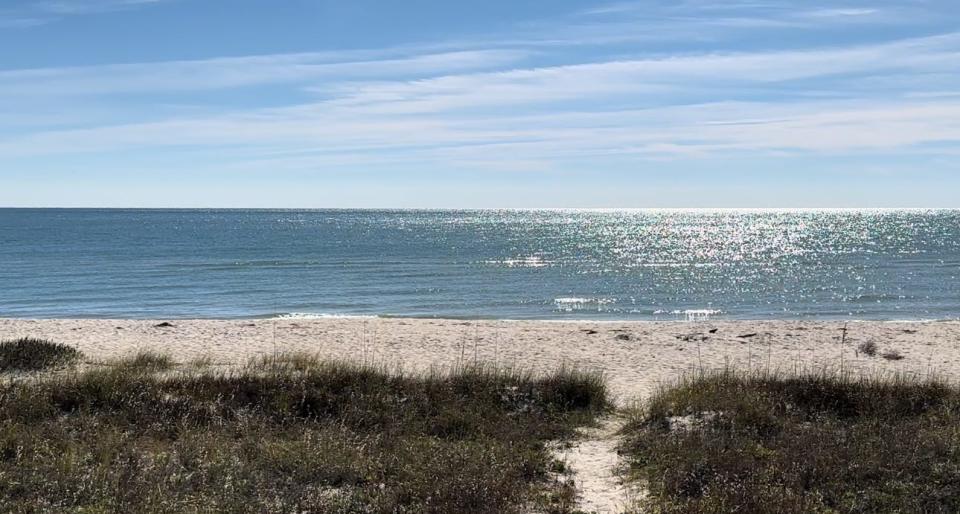
Downsizing and the illusion of possession
Quaker Richard Foster, in his classic book “Celebration of Discipline, The Path to Spiritual Growth,” written in 1978, describes four each of inward, outward, and corporate disciplines. In a chapter about the discipline of simplicity, he writes about the ways in which we as humans struggle with ownership.
Many of us have more possessions than we need or use, and yet continue to accumulate stuff. I realize the truth of it more than ever before during this year when I have set as a New Year’s resolution or intention to simplify, to downsize my life.
Foster made a statement in this chapter that struck me so powerfully when I first read it more than 40 years ago, that I have remembered it through the years and find it useful now.
He asks “Can we learn to enjoy things without owning them? Owning things is an obsession in our culture. If we own it, we feel we can control it; and if we can control it, we feel it will give us more pleasure. The idea is an illusion. Many things in life can be enjoyed without possessing or controlling them. Share things. Enjoy the beach without feeling you have to buy a piece of it.”
It was the last sentence that convinced me years ago, as I had always dreamed of living in a beach house one day.
What I have realized about the beach is, it cannot be truly owned, but it can be and must be cared for. It certainly can be enjoyed without possessing it. As can the glorious rivers in our region and the remarkable manatees that occupy their waters. Rylee did not have to own Georgia, finding her a place to stay, to enjoy the gift of a manatee she was sponsoring.
And in these particularly stressful times, when the cost of living is increasing and the pressure is high to purchase more and better for reasons that may not have anything to do with need, it seems so fortuitous that we have an abundance of beautiful nature to soothe and heal us.
It is my prayer that we all will take time to be still in nature, listening for its wisdom and grace, as we appreciate creation without having to own it.
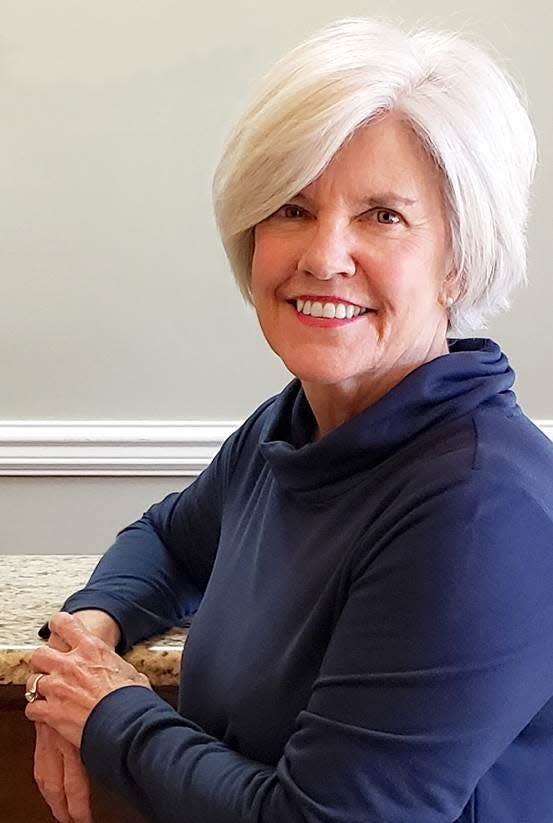
The Rev. Candace McKibben is an ordained minister and pastor of Tallahassee Fellowship.
This article originally appeared on Tallahassee Democrat: Beauties of creation can be appreciated without ownership

